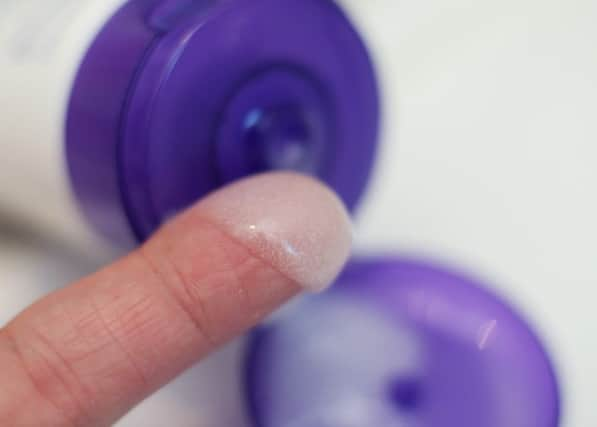Microbeads expected to be banned from end of 2017 in UK


Ministers will bow to growing pressure to prevent the tiny pieces of plastic doing harm to marine life by announcing plans for new measures on Saturday, Government sources told the Press Association.
A consultation process on how a ban would work is set to be put in train which is hoped will lead to the use of microbeads being halted by the end of 2017.
Advertisement
Hide AdAdvertisement
Hide AdThe microbeads are commonly found in items like toothpaste, exfoliating body scrubs, and a range of household products, and have provoked fears the material is building up in oceans across the world, potentially damaging wildlife and entering the food chain.
A number of cosmetic companies have made voluntary commitments to phase out the use of microbeads by 2020, but MPs demanded last month that the Government must step in to protect the environment as soon as is practicable due to the threats they pose.
The cross-party Environmental Audit Committee warned the Government needed to take strong action by banning the use of such plastics in products by the end of 2017 because of the increasing damage being caused by them.
The committee’s report said the cosmetics industry is failing to adequately label products which contain microbeads as it urged ministers to ensure greater transparency for consumers.
Advertisement
Hide AdAdvertisement
Hide AdThe report suggested microplastic pollution could be more damaging to the environment than larger pieces of plastic because its size makes it more likely to be eaten by wildlife and then potentially enter the food chain, for example a plate of six oysters can contain up to 50 particles of plastic.
The report stated there is “little evidence on potential human health impacts of microplastic pollution”, but further research is “clearly required”.
Commenting on the expected Government move, Greenpeace UK senior oceans campaigner Louise Edge said: “It’s a credit to Theresa May’s Government that they’ve listened to concerns from the public, scientists and MPs, and taken a first step towards banning microbeads.
“Marine life doesn’t distinguish between plastic from a face wash and plastic from a washing detergent, so the ban should be extended to microplastics in any product that could be flushed down the drain. If Theresa May wants to show real leadership on this issue, that’s the kind of ban she should back.”